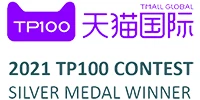- What we doPlatforms
- Who we are
WPIC helps global brands plan, launch, and grow in China, Japan, Korea, and Southeast Asia with local teams and full execution across strategy, logistics, commerce, and marketing.
Top news
- Our insights
Market trends, success stories, and industry insights from the experts at WPIC. Subscribe to our newsletter and get market intelligence on Asia Pacific in your inbox.
Latest insights
Pink Power in Motion – Bala Bangles
March 5, 2026Seed to Synergy – Synthesis Organics
March 4, 2026The Bottle of Freedom – Comotomo
March 3, 2026 - Careers at WPIC
















